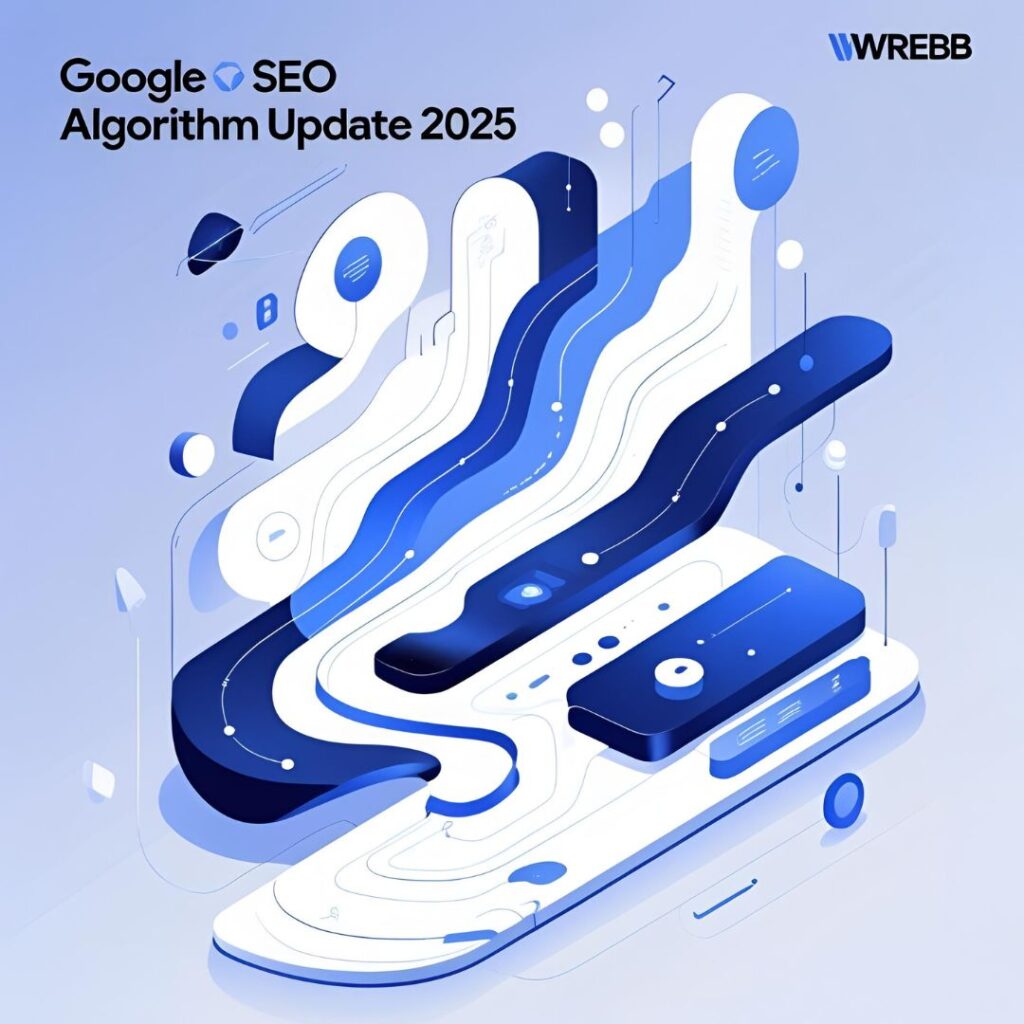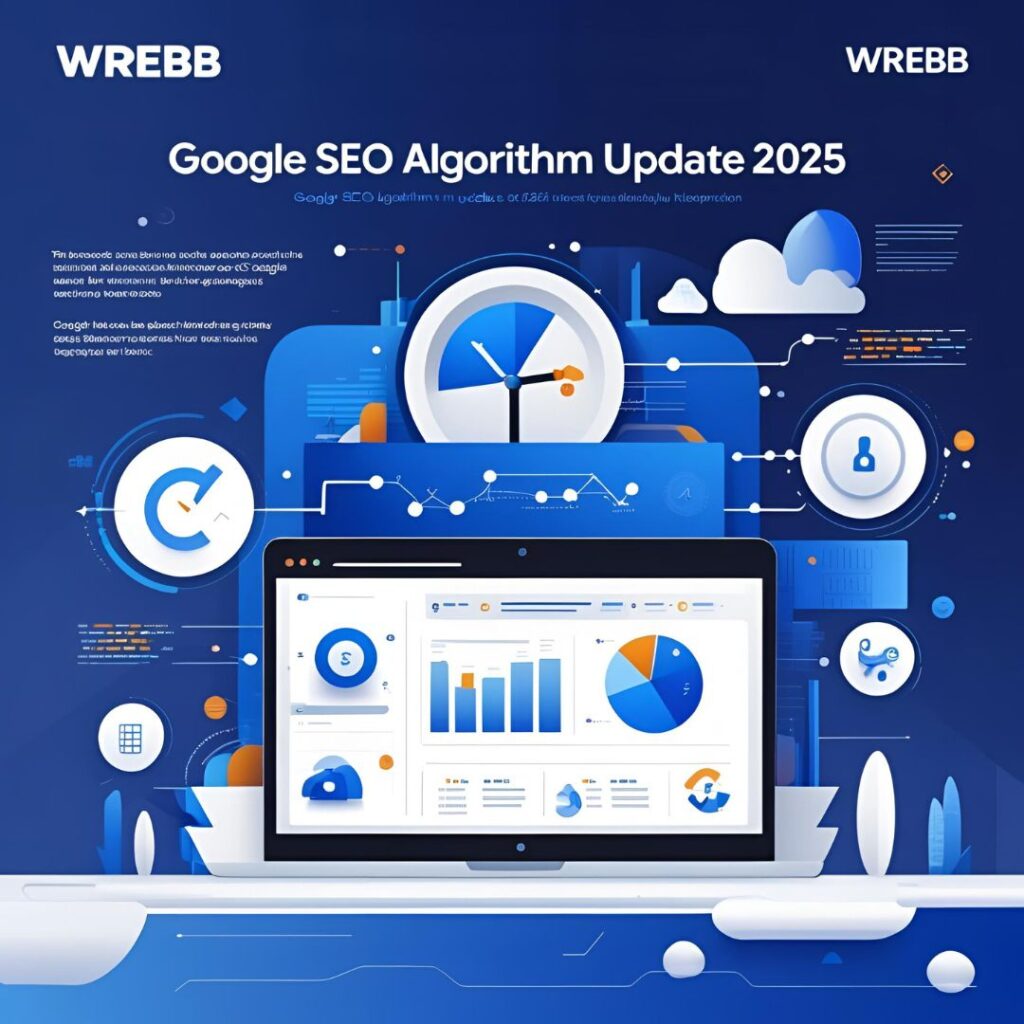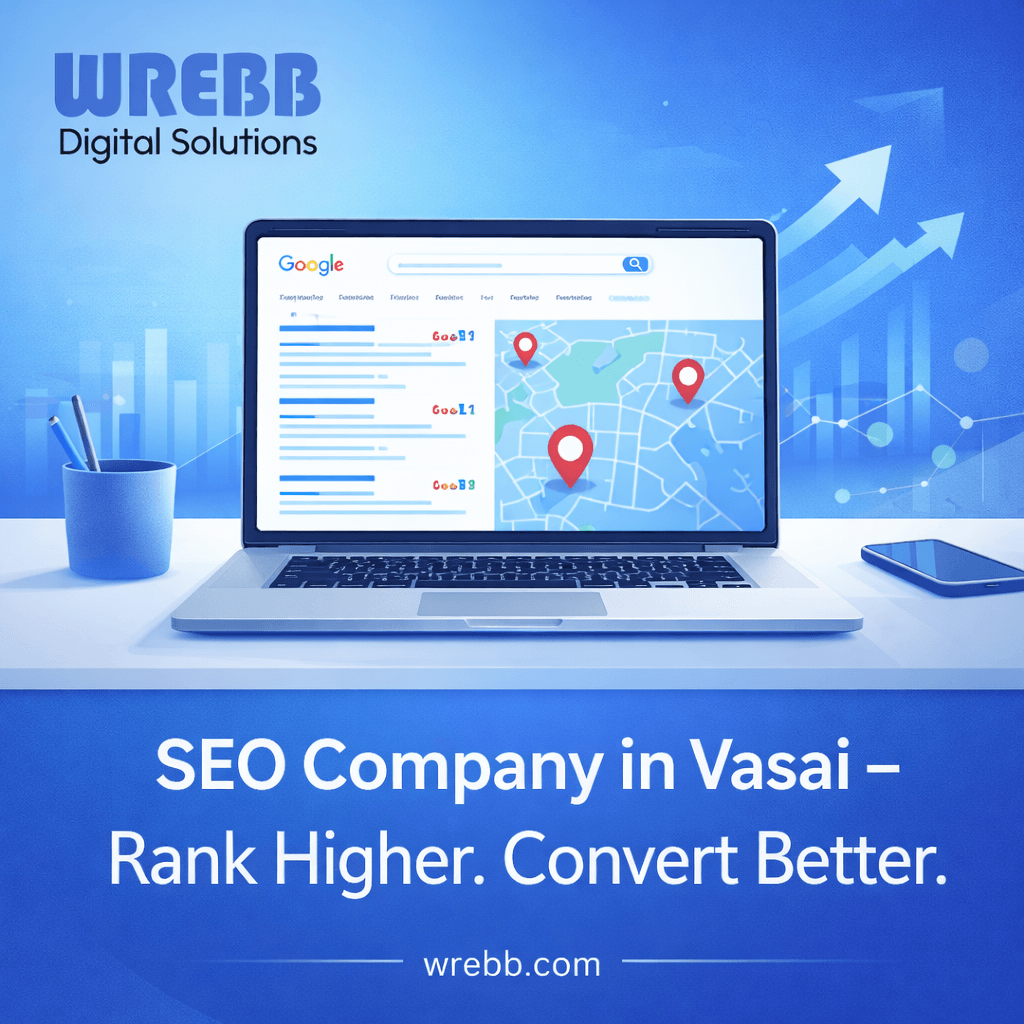Google’s relentless pursuit of delivering the most relevant search results has led to yet another significant transformation. The tech giant’s latest Google SEO algorithm update has sent ripples across the digital marketing landscape, fundamentally altering how websites achieve and maintain their search rankings.
Table of Contents
ToggleThis comprehensive overhaul affects millions of websites worldwide, with studies showing that approximately 60% of sites experienced ranking fluctuations within the first month of the rollout. Moreover, the update has particularly impacted content-heavy industries, with some sectors seeing up to 40% changes in their organic visibility.
Understanding these changes is not just beneficial, it is essential for survival in the competitive digital ecosystem. Whether you are a seasoned SEO professional, a business owner, or a content creator, adapting to this Google SEO algorithm update will determine your online success throughout 2025 and beyond.
Key Changes in Google’s 2025 Algorithm Update
Enhanced AI & Machine Learning Integration
Google’s integration of advanced AI technologies has reached unprecedented levels. The search engine now leverages sophisticated machine learning models that can understand context, user intent, and content quality with remarkable precision. Consequently, traditional keyword stuffing tactics have become not just ineffective but potentially harmful to your rankings.
Furthermore, the algorithm now processes over 15 billion queries daily, utilizing AI to interpret nuanced search intentions. This means your content must align with genuine user needs rather than simply matching keyword phrases. The system can now distinguish between high-quality, informative content and superficial material designed solely for search engines.
User Experience (UX) as a Top Ranking Factor
The Google SEO algorithm update has elevated user experience to critical importance. Core Web Vitals have become more stringent, with page load speeds under 2.5 seconds now considered the gold standard. Additionally, mobile optimization has shifted from optional to mandatory, especially since mobile searches account for over 58% of all queries.
Interactive elements, smooth navigation, and accessibility features now significantly influence your search rankings. Sites that provide seamless user experiences across all devices consistently outperform those with technical deficiencies, regardless of content quality.
EEAT Expansion (Experience, Expertise, Authority, Trustworthiness)
The evolution of Google’s EEAT framework represents one of the most substantial changes in this Google SEO algorithm update. The addition of “Experience” to the traditional EAT signals emphasizes first-hand knowledge and practical expertise. Content creators must now demonstrate not just theoretical understanding but real-world application of their subject matter.
Research indicates that websites with clearly identified authors and comprehensive author bios have seen ranking improvements of up to 25%. Meanwhile, anonymous or poorly attributed content has experienced significant drops in visibility. This shift particularly affects Your Money or Your Life (YMYL) topics, where credibility is paramount.
Zero-Click Search & Answer Optimization
The rise of featured snippets and AI-generated answers has transformed search behavior dramatically. Currently, approximately 65% of searches result in zero clicks, meaning users find their answers directly on the search results page. Therefore, optimizing for these quick-answer formats has become crucial for maintaining visibility.
Voice search optimization has also gained prominence, with conversational queries increasing by 35% year-over-year. Your content strategy must now account for natural language patterns and question-based searches to capture this growing segment.
Content Depth & Contextual Relevance
Gone are the days when thin, keyword-dense content could achieve high rankings. The Google SEO algorithm update now favors comprehensive, topic-cluster approaches that demonstrate thorough understanding of subject matter. Semantic search capabilities have advanced to the point where Google can identify content gaps and reward comprehensive coverage.
Long-form content (2,000+ words) continues to perform well, but only when it provides genuine value and maintains reader engagement throughout. Surface-level treatments of complex topics now face ranking penalties, while in-depth analyses and original research see significant boosts.
Anti-Spam & Low-Quality Content Crackdown
Google’s war against spam content has intensified considerably. The algorithm now identifies and penalizes AI-generated content that lacks human oversight, factual accuracy, or original insights. Websites relying heavily on automated content creation have seen dramatic ranking drops, with some losing up to 80% of their organic traffic.
Additionally, the update targets content farms, expired domain abuse, and manipulative link schemes with unprecedented precision. Recovery from these penalties requires substantial time and effort, making prevention the far superior strategy.
How the Update Is Affecting Current SEO Strategies
Winners & Losers After the Update
The Google SEO algorithm update has created distinct categories of winners and losers. Websites that invested in high-quality, expert-authored content have generally seen improvements. Medical websites with board-certified physicians as authors, financial sites with CPA-verified information, and educational platforms with credentialed instructors have experienced notable gains.
Conversely, affiliate sites with thin product descriptions, AI-generated news aggregators, and keyword-stuffed blog networks have suffered significant losses. The data shows that sites in the bottom 20% of quality metrics lost an average of 45% of their organic visibility.
Changes in Keyword Research & Content Creation
Traditional keyword research methodologies require substantial revision. Instead of focusing solely on search volume and competition metrics, successful SEO professionals now prioritize user intent, topic relevance, and semantic relationships. Long-tail keywords have become more valuable, particularly those reflecting conversational search patterns.
Content creation has shifted toward comprehensive topic coverage rather than individual keyword targeting. Successful pages now address multiple related queries within a single, well-structured piece, improving both user satisfaction and search performance.
The Decline of Traditional Backlinking Strategies
The Google SEO algorithm update has significantly reduced the effectiveness of manipulative link-building tactics. Guest posting for link acquisition, private blog networks, and link exchanges now carry substantial risks. Instead, the algorithm rewards natural link acquisition through valuable content and genuine relationships.
Quality has definitively triumphed over quantity, with a single link from a highly authoritative source now worth more than dozens of low-quality backlinks. This shift has forced SEO professionals to focus on creating link-worthy content rather than pursuing artificial link schemes.

Video & Visual Search Optimization
Visual content has gained unprecedented importance in this update. Video content, in particular, has seen remarkable performance improvements, with properly optimized videos ranking in both traditional and video search results. YouTube SEO has become integral to overall search strategies, given Google’s ownership and preferential treatment of the platform.
Image optimization has evolved beyond simple alt text, now requiring comprehensive context, proper file naming, and strategic placement within content structures. Visual search capabilities continue expanding, making image SEO a critical component of comprehensive strategies.
Adapting to the New SEO Landscape: Actionable Tips
Improving EEAT Signals
Establishing strong EEAT signals requires systematic approach and consistent execution. Start by creating comprehensive author bios that highlight relevant qualifications, experience, and expertise. Include professional headshots, credentials, and links to additional authoritative sources that validate your expertise.
Furthermore, develop relationships with industry experts and secure expert quotes, interviews, or guest contributions. These collaborations not only enhance content quality but also provide valuable EEAT signals that the algorithm recognizes and rewards.
Enhancing Technical SEO
Technical optimization has become more critical than ever. Focus on improving Core Web Vitals through image optimization, code minification, and server response improvements. Implement schema markup comprehensively to help search engines understand your content structure and purpose.
Mobile-first indexing requires flawless mobile experiences, including fast loading times, easy navigation, and proper content display across all device sizes. Regular technical audits should identify and resolve issues before they impact rankings.
Creating High-Quality, Comprehensive Content
Content quality standards have risen dramatically with this Google SEO algorithm update. Invest time in thorough research, original insights, and comprehensive coverage of your chosen topics. Include relevant statistics, case studies, and expert opinions to support your arguments and enhance credibility.
Additionally, maintain high editorial standards through professional editing, fact-checking, and regular content updates. Outdated or inaccurate information can quickly harm your rankings and credibility.
Leveraging AI Responsibly
While AI tools can enhance content creation efficiency, they require careful implementation and human oversight. Use AI for research, outline creation, and initial drafts, but ensure human experts review, edit, and enhance all final content. The algorithm can detect purely AI-generated content and may penalize it accordingly.
Combine AI capabilities with human expertise to create content that’s both efficient to produce and valuable to users. This balanced approach allows you to scale content production while maintaining quality standards.
Prioritizing User Engagement Metrics
User engagement signals have gained significant importance in ranking calculations. Focus on reducing bounce rates through compelling introductions, clear navigation, and valuable content that encourages extended reading. Implement interactive elements like polls, quizzes, or calculators to increase user engagement.
Monitor analytics closely to identify content that generates high engagement and replicate those successful elements across your site. Time on page, scroll depth, and return visits all contribute to your site’s perceived value.
Predictions for Future SEO Trends Post-Update
The trajectory established by this Google SEO algorithm update suggests several emerging trends. AI-driven personalization will likely become more sophisticated, delivering increasingly customized search results based on individual user behavior, preferences, and search history.
Local SEO will gain even greater importance as search becomes more context-aware and location-specific. Businesses that optimize for hyper-local queries and provide location-relevant content will see continued advantages.
Moreover, brand trust signals will likely become more prominent ranking factors. Established brands with strong reputations may receive preferential treatment, while new or unknown entities will need to work harder to establish credibility and authority.
Voice search optimization will continue expanding as smart speakers and mobile voice assistants become more prevalent. Content optimized for conversational queries and natural language patterns will increasingly outperform traditional keyword-focused approaches.
Maximizing Your SEO Success in the New Era
Successfully navigating this Google SEO algorithm update requires a fundamental shift in mindset and strategy. Rather than focusing solely on search engines, prioritize creating genuinely valuable content that serves your audience’s needs and interests.
Invest in building long-term authority and trust rather than pursuing short-term ranking gains through manipulative tactics. The algorithm’s increasing sophistication makes sustainable, white-hat approaches not just preferable but necessary for long-term success.
Stay informed about ongoing developments and be prepared to adapt your strategies as the algorithm continues evolving. The most successful SEO professionals maintain flexibility while adhering to fundamental principles of quality, relevance, and user value.
Remember that SEO success now requires patience, consistency, and commitment to excellence. Quick fixes and shortcuts are increasingly likely to result in penalties rather than improvements. Focus on building a strong foundation that can withstand future algorithm changes while delivering consistent value to your audience.
Frequently Asked Questions
How long does it take to recover from ranking drops caused by the Google SEO algorithm update?
Recovery time varies significantly depending on the severity of issues and the speed of implementation of corrective measures. Minor ranking fluctuations typically stabilize within 2-4 weeks, while sites with significant penalties may require 3-6 months of consistent improvement efforts to see meaningful recovery.
Should I completely rewrite content that was affected by the algorithm update?
Complete rewrites aren’t always necessary. Instead, focus on enhancing existing content by adding expert insights, updating statistics, improving EEAT signals, and ensuring comprehensive topic coverage. However, thin or low-quality content may benefit from substantial revision or consolidation.
How can small businesses compete with large corporations after this update?
Small businesses can leverage their unique advantages, such as local expertise, personalized service, and niche specialization. Focus on creating highly relevant, location-specific content and building strong local authority signals. Authentic, experience-based content often outperforms generic corporate material.
Is AI-generated content completely penalized by the new algorithm?
The algorithm doesn’t automatically penalize AI-generated content but rather focuses on quality, accuracy, and value regardless of creation method. AI content that lacks human oversight, contains factual errors, or provides no unique insights is more likely to face penalties.
What’s the most important ranking factor to focus on after this update?
While multiple factors contribute to rankings, EEAT signals (Experience, Expertise, Authority, Trustworthiness) have become critically important. Focus on establishing clear author credentials, providing comprehensive and accurate information, and building genuine authority in your field.
Ready to navigate the complexities of Google’s latest algorithm changes? At Wrebb Digital Solutions, we specialize in helping businesses adapt their SEO strategies for maximum impact in the evolving search landscape. Contact us today to discover how we can help your website thrive in the new SEO environment and achieve sustainable organic growth.




